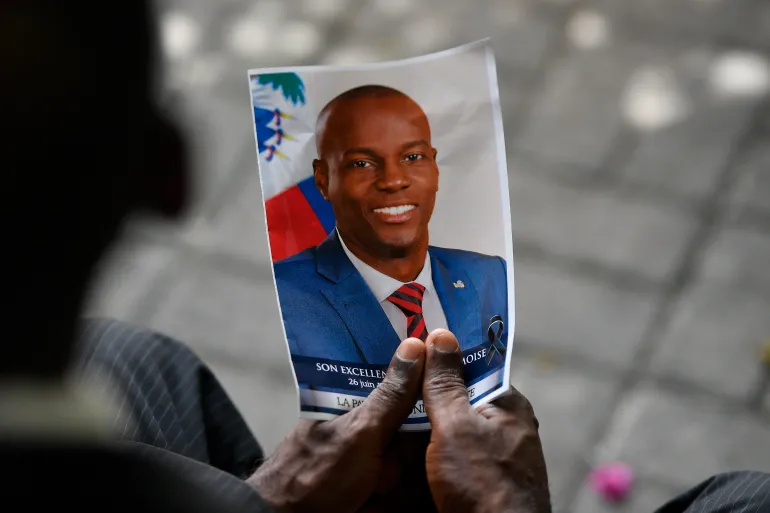Almost four years after the shocking assassination of President Jovenel Moïse, Haiti is renewing its stalled investigation into the murder, as the country grapples with intensifying insecurity and a failing judicial system.
President Moïse was killed on July 7, 2021, after being shot 12 times in his private residence in Port-au-Prince. The brazen attack captured global attention and highlighted Haiti’s alarming descent into lawlessness and external interference.
The investigation has been consistently obstructed by gang violence, judicial resignations due to death threats, and security breakdowns. Although 20 suspects are currently jailed in Haiti, none have been tried despite facing formal charges.
Key figures like Dimitri Hérard, the former head of presidential security, escaped during a 2023 prison break orchestrated by gangs. Criminal groups now control more than 85% of Port-au-Prince, according to the UN Office on Drugs and Crime (UNODC), forcing court sessions to be held in private homes under heavy protection.
The case now involves 51 suspects, including 17 ex-Colombian soldiers, several Haitian officials, and individuals tied to a U.S.-based private security firm. Some claim they were hired for infrastructure protection, not for any assassination plot.
Serious human rights concerns have also emerged, with allegations of torture and coerced confessions. Colombian national Jheyner Alberto Carmona Flores alleged he suffered both mental and physical abuse and denied any involvement in the crime.
While Haitian authorities struggle to bring suspects to trial, the United States has made headway by prosecuting 11 individuals linked to the plot. Five have already pleaded guilty. U.S. court records suggest the initial plan was to arrest Moïse, but it turned into a killing when the operation failed.
Now, a team of six Haitian judges, including Claude Jean and Phemond Damicy, is spearheading a renewed effort to deliver justice. Yet public confidence remains low.
“This case lays bare the collapse of Haiti’s justice system,” said Bruner Ulysse, a local attorney and historian. “There may be international involvement, but true justice still feels distant.”
The outcome of the investigation carries weight far beyond Haiti’s borders, as it underscores the deep political instability and rising criminal dominance in one of the Western Hemisphere’s most fragile states.

